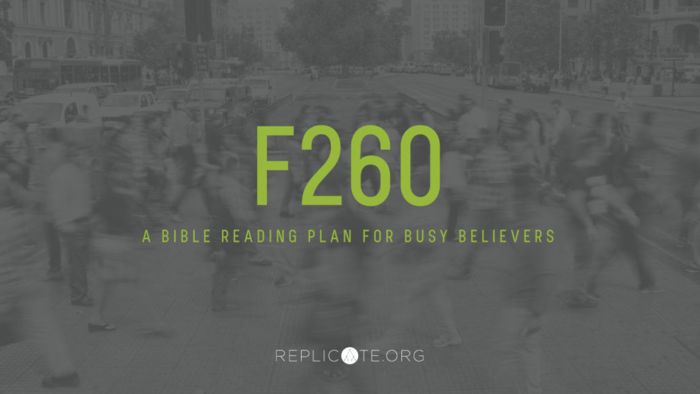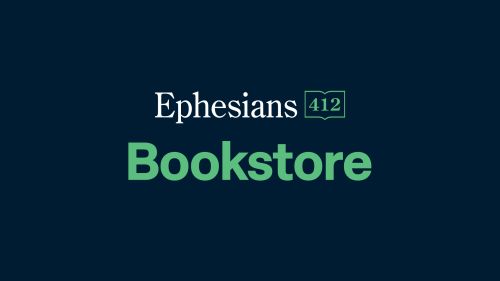The great English preacher, Charles Spurgeon once said: “Many books in my library are now behind and beneath me. They were good in their way once, and so were the clothes I wore when I was ten years old; but I have outgrown them. Nobody ever outgrows Scripture; the book widens and deepens with our years.”
Christians throughout the history of the world have come to appreciate this divine wonder that God has given to us in his word. It is alive and active, it is honey to those who eat it, sure footing to those who tread upon it and a light for those who need it. But for many sincere believers, reading the Bible can often be difficult.
All too often we either fail to plan, or we are intimidated by what we do read. If you’ve been tripped up by one of these, there are small steps you can take to know God better through Bible reading. Just in time for your New Year’s resolutions, we want to provide two key resources which will help you experience the wonder of God in his word.
A Simple Bible Reading Plan:
In the past we’ve put out a number of great Bible reading plans, and if you have a plan that works for you then keep it up! But I know for many people throw their hands up in frustration only a few weeks (days!) into the process because their plan demands too much given their current relationship with the Bible reading.
Like any good athlete knows planning and pacing are key. If you go to work out without a plan (think opening your Bible and hoping you’ll find something helpful) then you won’t make any headway when it comes to your fitness goals. But on the flip side, even if you go in with a plan, but your exercises and starting weights are beyond your ability (think a new believer trying to read through a couple chapters of Leviticus on its own) you’ll be equally as ineffective.
In our efforts to grow as a Healthy Church, we are wanting to recommend a plan that anyone can pick up and run with: the F260 Bible Reading Plan. Short for “Foundations 260,” this Bible reading plan is designed to walk you through a foundational understanding of all 66 books of the Bible in 260 days (five days a week).
While this plan doesn’t read every verse of the Bible in one year, it does expose you to key passages of every book which helps acclimate us to the redemptive story of scripture. Each week also comes with Bible memory passages to help retain God’s word deep in our hearts.
This reading plan comes with a printable PDF (we will have copies at the info desk) and for those who prefer a digital reading experience, it also has its own digital plan on the YouVersion App. For more information and resources on the plan, visit F260’s website. These resources and more make it a great plan to work through with your family or your co-workers. Invite others to read God’s word with you, gather for lunch to discuss what God is teaching you and to quiz each other on Bible memory.
A Good Study Bible:
Sometimes when it comes to reading our Bible we can read it a bit too much like a text book. In this way study Bibles can sometimes be unhelpful for those who are prone to this error. In the end we can often look at God and theology like a science project instead of a person who knows us and wants to be known by us.
But for many of us (myself included, though I’m prone to all the errors above) study Bibles give us a little push where our wheels might have gotten a bit bogged down. While the Bible was clearly written by the prophets and apostles, and able to be understood by all people, there are some places in scripture where we often get bumped off track. Maybe it’s a tough issue, a difficult to follow story, or vocabulary you aren’t yet familiar with, but a good study Bible helps bring you a bit more clarity in places like that.
I use study Bible notes like a score board during a football game. When there are times when I feel lost or confused as to what is happening, I’m able to consult the notes and in a metaphorical sense they let me know some important thing: What’s the score? How much time is left? And who has the football?
Notes can help us understand texts which rely more closely on certain historical events that we may not be familiar with, or they can help us understand how any given text relates to the gospel event. I know for my own devotions, there are often times where there is just enough of a lack of clarity that my mind can’t really focus on what I read afterwards. A quick glance at the study notes helps me process through that so that I can get back to reading.
Here are some study Bibles that might help you. Since the translation we use at Sovereign Hope is the ESV, I’m only going to recommend ones based off that. But there are lots of good options regardless of your translation. Each of these are also available digitally via the ESV website and app.
The ESV Study Bible: One of the best all-around Study Bibles when it comes to practical and helpful notes on both theological and cultural issues in the biblical texts.
The ESV Story of Redemption Bible: While not as thorough as the former one, the Story of Redemption Bible includes notes and articles which help you understand the ways in which the whole Bible is telling one single story: the story of redemption. These notes, written by Pastor Greg Gilbert, help you understand the relationship that different parts of the Bible play in connection to the gospel event (which is the lens through which we should read the whole Bible!).
The ESV Gospel Transformation Bible: This specific Bible is a great blend between the first two options. It engages a bit more critically with historical and cultural details than the “Story of Redemption” Bible, but leans more towards practical application than the ESV Study Bible. This one probably hits the mark for the average reader of the Bible.




